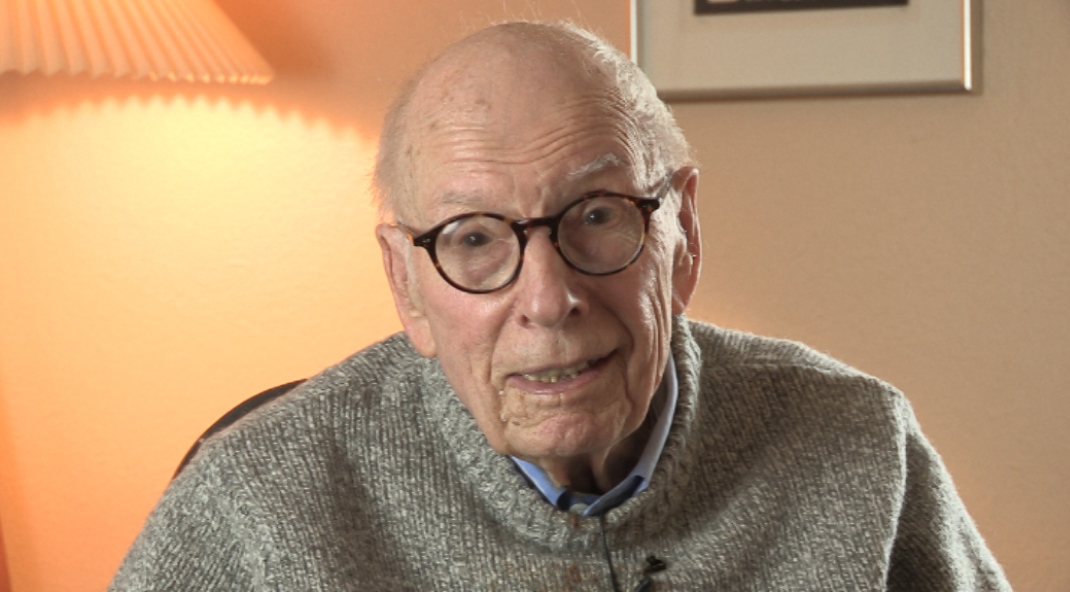NEXT STORY

A very different part of America
RELATED STORIES

NEXT STORY

A very different part of America
RELATED STORIES


|
Views | Duration | |
|---|---|---|---|
| 41. Like rewriting Hamlet! | 30 | 04:49 | |
| 42. Physics of shapes appeals to everyone | 35 | 00:38 | |
| 43. An unusual birthday present | 31 | 01:59 | |
| 44. Roy Chapman Andrews - the real Indiana Jones | 60 | 02:38 | |
| 45. Collecting mosquitoes puts me off applied biology for life | 37 | 01:29 | |
| 46. A very different part of America | 40 | 01:04 | |
| 47. My very happy marriage | 91 | 01:54 | |
| 48. Alzheimer's disease | 83 | 01:03 | |
| 49. A Eureka moment in the lab | 40 | 01:43 | |
| 50. Learning molecular biology from the roots | 42 | 02:47 |


Charles Easterday Renn was my tutor. And he likes applied biology and he felt like that was my career, which he was wrong. And he had himself discovered the wasting disease of eel grass as a peculiar, interesting organism. And in his desire to make an applied biologist of me, he got me in touch with people in the Tennessee Valley Mosquito Control. And all it did was it absolutely convinced me that that's not what I wanted to do because it seemed to me there we spent all day long in swamps up to the waist, collecting mosquito larvae. And then, sometimes, we'd be in villages collecting adult mosquitoes. And that's about all there was to it, except it was my first exposure to the South which was not really very pleasant. There was some people I was very fond of, but on the whole, all the prejudices were out front everywhere.
John Tyler Bonner (born in 1920) is an emeritus professor in the Department of Ecology and Evolutionary Biology at Princeton University. He is a pioneer in the use of cellular slime molds to understand evolution and development and is one of the world's leading experts on cellular slime molds. He says that his prime interests are in evolution and development and that he uses the cellular slime molds as a tool to seek an understanding of those twin disciplines. He has written several books on developmental biology and evolution, many scientific papers, and has produced a number of works in biology. He has led the way in making Dictyostelium discoideum a model organism central to examining some of the major questions in experimental biology.
Title: Collecting mosquitoes puts me off applied biology for life
Listeners: Christopher Sykes
Christopher Sykes is an independent documentary producer who has made a number of films about science and scientists for BBC TV, Channel Four, and PBS.
Tags: applied biology, swamp, mosquitoes, prejudice
Duration: 1 minute, 29 seconds
Date story recorded: February 2016
Date story went live: 14 September 2016